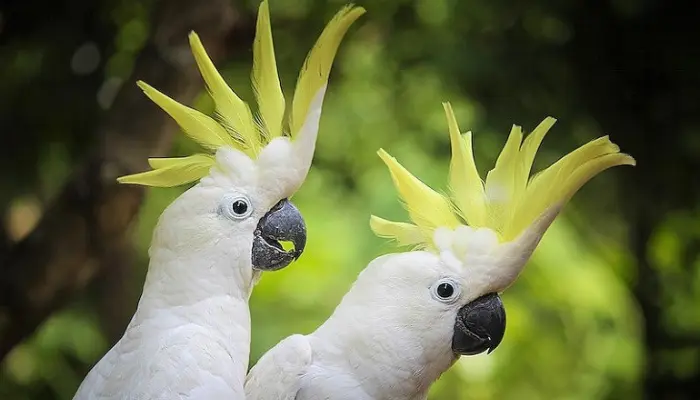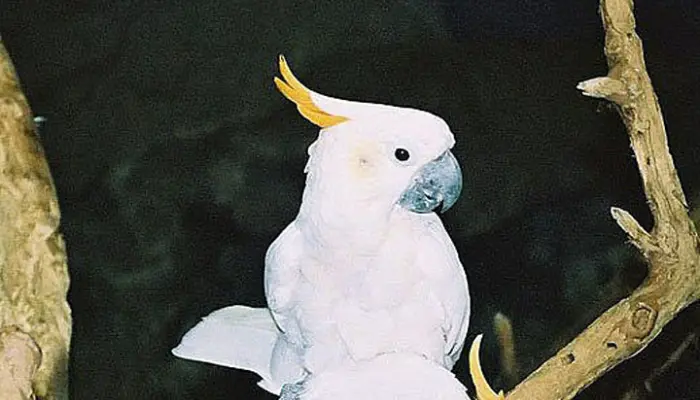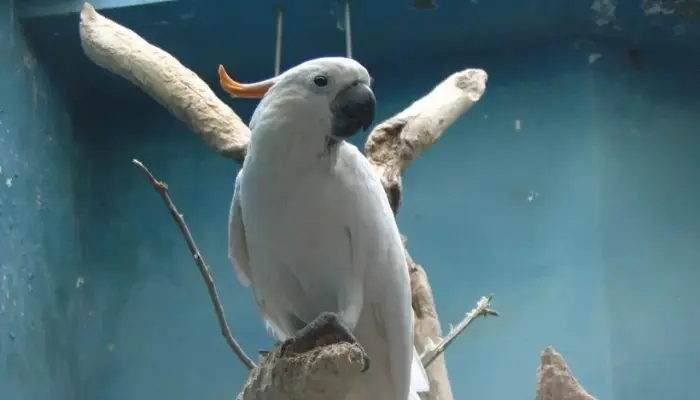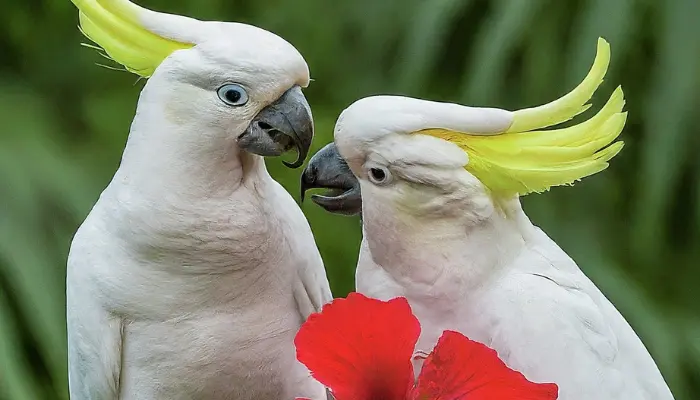the citron-crested cockatoo (Cacatua sulphurea citrinocristata) stands out as one of the most captivating avian species in the world with its striking appearance and charming personality, Adorned with vibrant lemon-yellow plumage and a distinctive feathery crest atop its head.
Beyond its stunning appearance, the citron-crested cockatoo possesses a complex array of behaviors and traits, making it a fascinating subject of study and admiration. In this article, we will discuss the Citron-crested Cockatoo’s physical characteristics, habitat, behavior, lifespan, care tips, and price.
Origin and History of Citron-Crested Cockatoo
The citron-crested cockatoo has a fascinating history that starts in the lush forests of Indonesia. It is a subspecies of the lesser sulphur-crested cockatoo, famous for its crest. People have been amazed by its beautiful appearance and cleverness for centuries. Even way back in the 1500s, explorers were captivated by these birds.
They have become popular as pets because of their striking looks and friendly personalities. Sadly, they face dangers like losing their homes and being traded illegally. But many people are working hard to protect them so they can keep bringing joy for years to come.
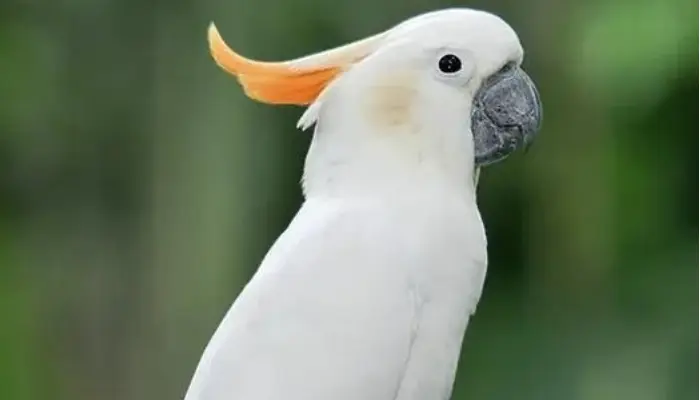
Scientific Classification of Citron-Crested Cockatoo
The Citron-Crested Cockatoo, also known as the Citron Cockatoo or the Lesser Sulphur-Crested Cockatoo, belongs to the following scientific classification.
| Kingdom | Animalia |
| Class | Aves (Birds) |
| Family | Cacatuidae |
| Scientific Name | Cacatua sulphurea |
| Common Name | Citron-Crested Cockatoo |
| Bird Size | crested cockatoos typically range from medium to large in size, with adults reaching lengths of about 30 to 35 centimeters (12 to 14 inches) |
| Feather Color | The feathers of citron-crested cockatoos are primarily white, with hints of pale yellow on the underside of the wings and tail feathers |
| Crest Color | As indicated by their name, citron-crested cockatoos have distinctive yellow crests atop their heads, which contrast with their white plumage |
| Lifespan | Citron-crested cockatoos have a relatively long lifespan, often living between 40 to 60 years in captivity when provided with proper care and attention |
| Price Range | The price of citron-crested cockatoos can vary widely based on factors such as age, temperament, and whether they are hand-reared or parent-raised. Prices typically range from $1000 dollars to a few thousand dollars |
